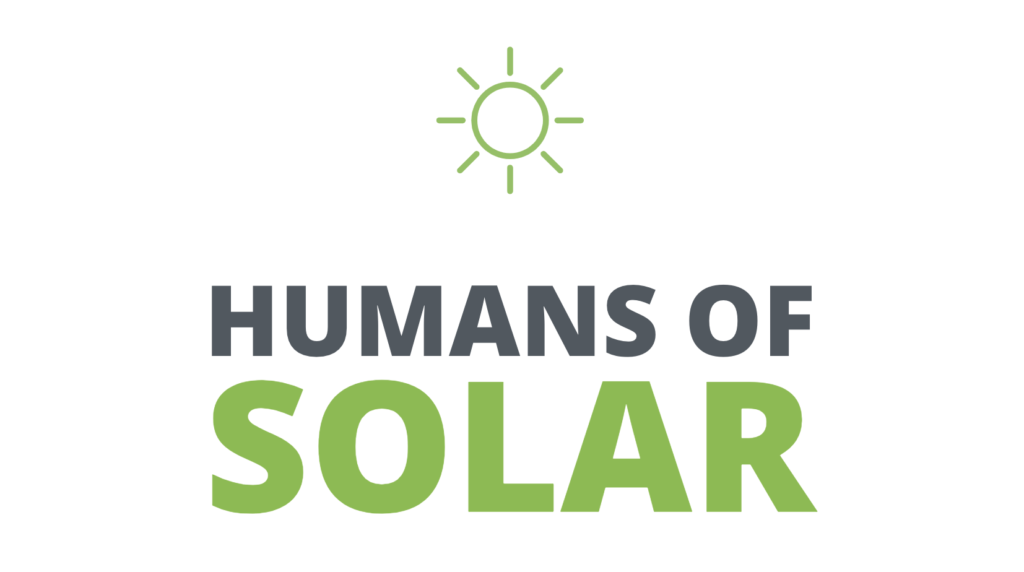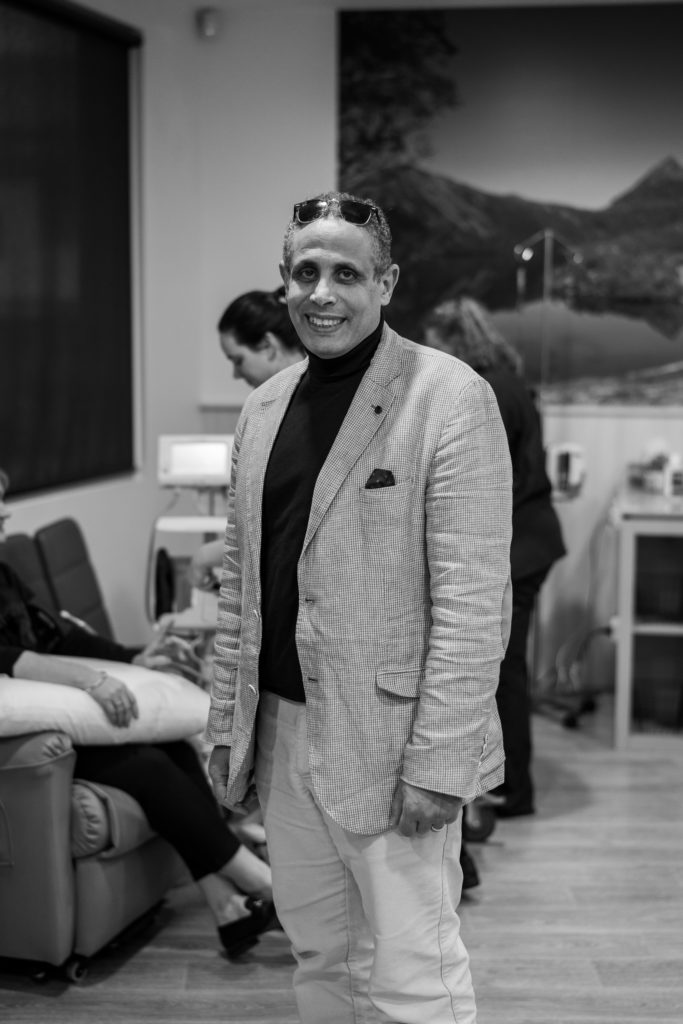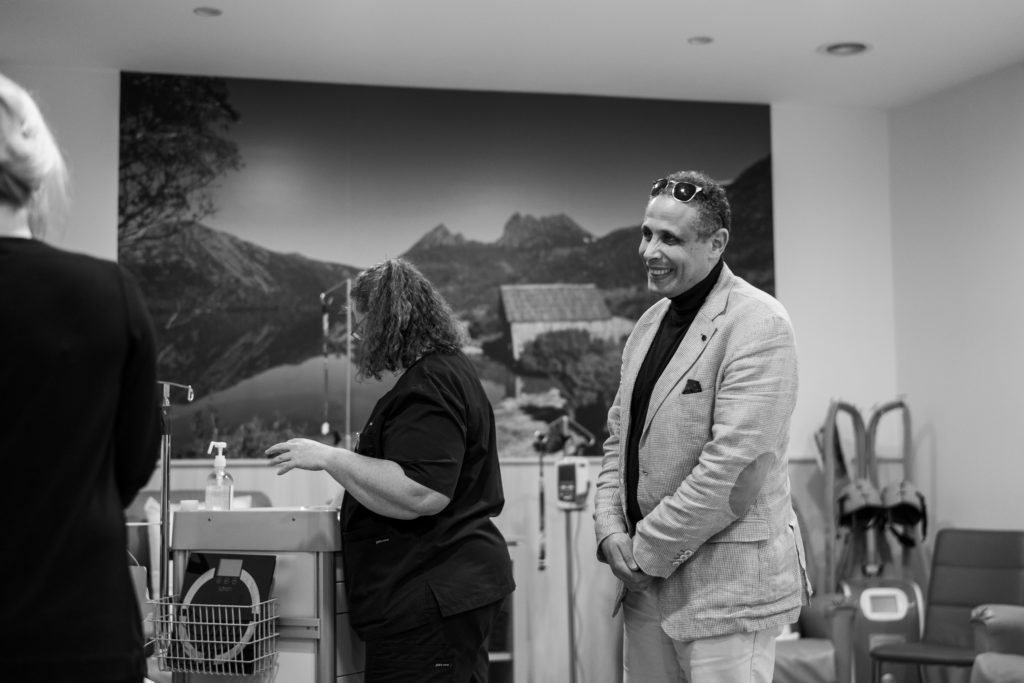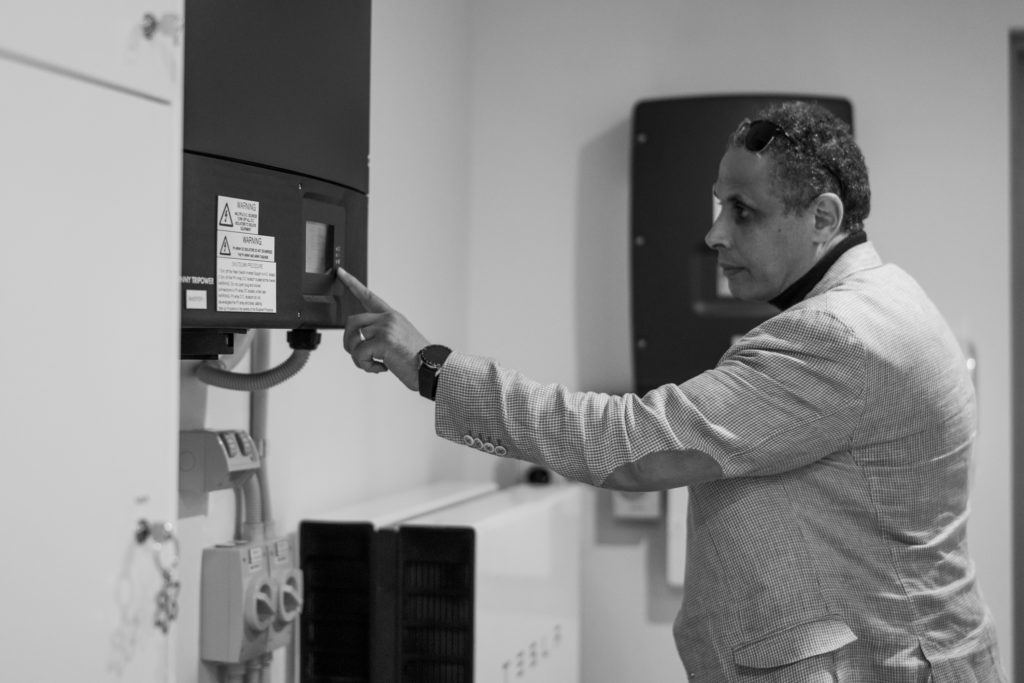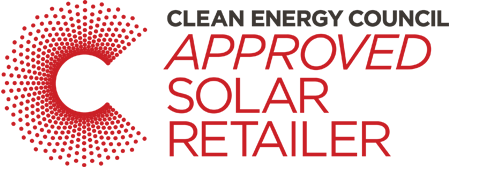Humans of Solar: Dr Al
31 Aug, 2021
We speak with everyday Tasmanians who are living off sunshine.
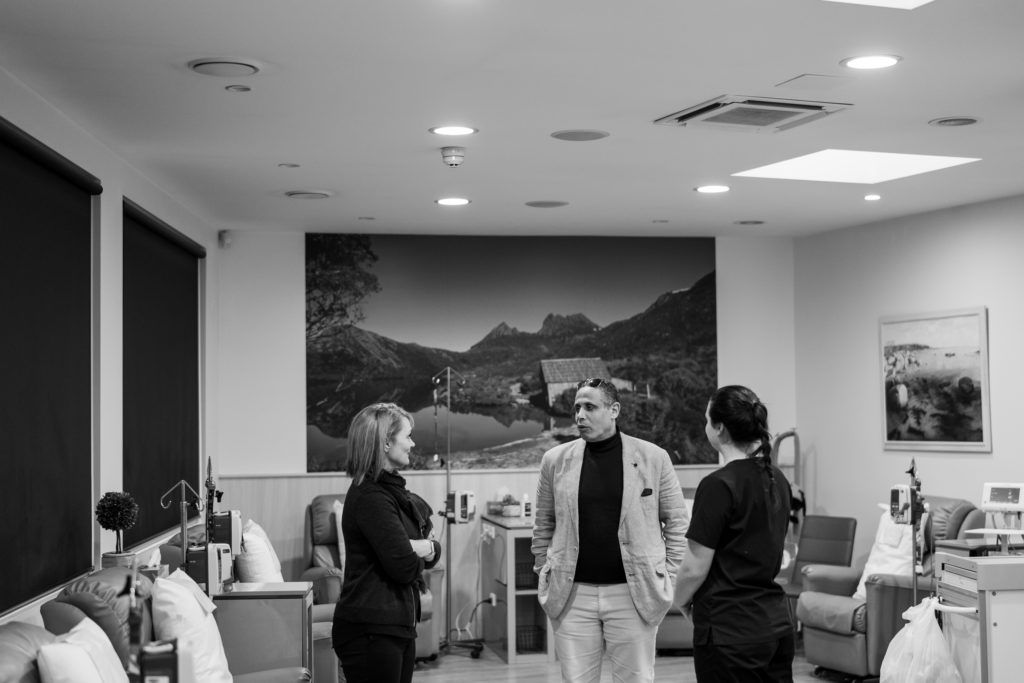
— with Dr Alhossain Khalafallah
I’m a professor of medicine, born and raised in Egypt until I graduated from the faculty of medicine in Cairo. I left Egypt to study in Germany and then graduated from the University of Heidelberg in West Germany. I went there in the early ‘90s until 2000 and attained qualifications in medicine as a consultant physician, consultant haematologist and consultant oncologist.
In early 2000 I went to Australia to pursue my career. I met my wife in Sydney and we now have three children and have been living in Launceston for the last 20 years.
I always dreamed of having sustainable energy sources; clean, renewable energy. Solar energy is one of the most fascinating things and the invention of batteries means we can restore the solar energy during the day to utilise it at night.
We run three hospitals (Specialist Care Australia in Launceston, Ulverstone and Campbell Town) and our home off solar. Five years ago, our Launceston hospital was the first in Australia to be run completely on renewable energy, and that’s something I’m proud of. In everything I do, the different projects, I want to be mindful of nature, of not encroaching on nature, to respect nature.
The trigger was in Germany. I noticed that people were very aware of green resources and maintaining nature, of using renewable energy. This fascinated me. Along the track, I thought that when I have the opportunity I would try and achieve what the Germans have done.
We’re nearly off-grid. In the cooler months, we generate about 80 percent of our needs, but in summer, we sell back to the grid because we have over-production. We’re expanding now, replacing some of our solar panels with photosensitive solar panels that are twice as effective. We have two, 14kW Tesla batteries at the Launceston hospital. Ulverstone and Campbell Town have one each, as does our home.
My philosophy is to create an atmosphere of tranquility and peace. It doesn’t look like a hospital and people feel at home with artwork on the walls, fresh flowers, soft music. That’s the most important thing we can offer, especially to cancer patients, because they get anxious about what’s going to happen to them. We try to alleviate any pain or burdens psychologically or mentally for them. It’s the same clinical treatment, with care that’s above and beyond. And it works. The human mind is very powerful. It’s important to not only look after the body, but the mind and soul also.
We’re a one-stop shop. I’ve worked in Europe, America, Australian mainland and here in Launceston and patients see the doctor in one spot, have the treatment in another spot, go to a third spot for pathology, a fourth spot for the pharmacy and a fifth spot for the procedure. So five different places on different levels or different buildings or different locations. I wanted to ease that burden by offering it all in one place.
Of course, I’ve learnt this from experiences throughout my life, but it was a dream since I was a medical student in Egypt. And I hope that my approach, respecting nature and humanity, can inspire others to creatively make changes too.
